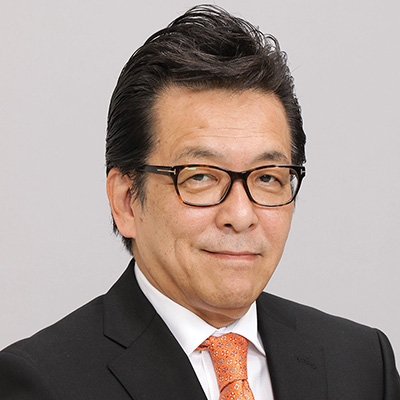Rising Japanese interest in major M&A activities promising big ticket deals
How likely is it that Japanese companies will target Vietnamese businesses in the coming time?
 |
| Masataka “Sam” Yoshida, head of the Cross-border Division of RECOF Corporation and CEO of RECOF Vietnam Co., Ltd |
Japan’s outbound merger and acquisition (M&A) transactions bottomed out in the second and third quarters of 2020, and picked up speed in this year’s second quarter.
North America contributed most transactions and saw a rise of 60 per cent on-year, but Asia also advanced with 53 transactions, up 43 per cent. Vietnam kept its second position among ASEAN countries, only after Singapore, and recorded nine transactions in the second quarter, up 80 per cent.
This includes the $1.4-billion investment by SMBC Consumer Finance in FE Credit (VP Bank subsidiary) which took almost half of the total invested volume of all transactions in the region in Q2. So, we cannot deny that this deal was unique and exceptional within and that the other eight transactions were minimal by size.
Japanese companies will continue to look outwards and see Vietnam as a good investment location because it has a rapidly evolving domestic consumer market and many willing sellers who are looking for capital and expertise from Japanese investors.
Both Japanese and Vietnamese governments have shown ongoing commitments to creating a more investor-friendly environment in both countries.
Despite the warming market sentiment in Japan, overseas travel restrictions remain the big hurdle for M&A transactions, and most of the deals have taken unexpectedly long before closing, with many of them starting before the pandemic became serious early last year.
The statistics indicate that Japanese investors started to catch up with global competition in investing in high-growth markets, especially Vietnam. Because of the pandemic, it is possible that Japanese companies are not able to come back to the market in full scale, at least during this Q3.
Why are Japanese investors spending more on acquiring Vietnamese assets compared with investors from other Asian territories?
We have seen a noticeable string of large transactions conducted by Japanese parties in Vietnam’s banking, finance, and real estate markets. This can be explained by the continued expansion of Japanese-Vietnamese relations, along with the recent recovery in Japanese outbound M&A activities.
Many factors are driving this acceleration, including Japan’s stagnating domestic economy, the low cost of capital, and the encouragement from the government for Japanese companies to divest non-core businesses and pursue returns and growth. To achieve that goal, cross-border M&A activities in emerging countries are on the rise, especially among large Japanese corporations.
Generally speaking, large Japanese corporations are less interested in buying small or early-stage Vietnamese businesses. The fact that Japanese investors tend to acquire well-established and financially sound local companies has differentiated them from others who often buy out distressed or unprofitable businesses for restructuring. Seeking investment opportunities in established companies inevitably means going after bigger deals.
In addition, the price is important for Japanese buyers, but it is not the sole consideration. They are more concerned about the strategic rationale of the transaction such as deal synergies, customer base, and relations with the existing trading partners.
Japanese companies are also risk averse and would always want to be fully compliant with tax and other regulatory requirements in Vietnam. Therefore, they are generally willing to offer higher valuation compared to investors from other countries.
What is the outlook for M&A in Vietnam in the second half of 2021?
More deals that were postponed by the onset of the pandemic will make their way back to the market, creating more targets. Companies are adjusting to the “new normal”, which means more people are getting accustomed to online meetings and advanced virtual data room technology. We really wish to see the process of completing due diligence and concluding transactions comprehensively online become a real possibility.
However, in light of the ongoing pandemic, we believe Vietnam’s economic outlook is not immune to risks. Several economic and financial indicators have not yet bounced back to their pre-crisis levels, including the GDP growth rate.
A great deal of uncertainties remain. Along with the rising infections in Ho Chi Minh City in the absence of effective vaccines, unpredictable economic and social changes may also occur during the crisis. With all this, it could be unreasonable to expect a significant uptick in M&A activities for the rest of 2021 if the pandemic remains as troublesome as now.
The market is likely to see more selection and concentration activities by investors in this time of uncertainty. However, after this phase, the need for companies to divest and restructure their balance sheet will spark opportunities. On the other hand, companies that made deals during uncertain times may outperform their industry peers.
What the stars mean:
★ Poor ★ ★ Promising ★★★ Good ★★★★ Very good ★★★★★ Exceptional
Related Contents
Latest News
More News
- Cool Japan Fund transfers shares of CLK Cold Storage (January 28, 2026 | 17:16)
- Nissha acquires majority stake in Vietnam medical device maker (January 26, 2026 | 15:40)
- BJC to spend $723 million acquiring MM Mega Market Vietnam (January 22, 2026 | 20:29)
- NamiTech raises $4 million in funding (January 20, 2026 | 16:33)
- Livzon subsidiary seeks control of Imexpharm (January 17, 2026 | 15:54)
- Consumer deals drive Vietnam’s M&A rebound in December (January 16, 2026 | 16:08)
- Southeast Asia tech funding rebounds on late-stage deals (January 08, 2026 | 10:35)
- DKSH to acquire Vietnamese healthcare distributor Biomedic (December 24, 2025 | 15:46)
- Central Retail refocuses Vietnam strategy with Nguyen Kim exit (December 24, 2025 | 15:01)
- RongViet Securities wins sixth consecutive M&A advisory award (December 22, 2025 | 17:30)

 Tag:
Tag:




















 Mobile Version
Mobile Version